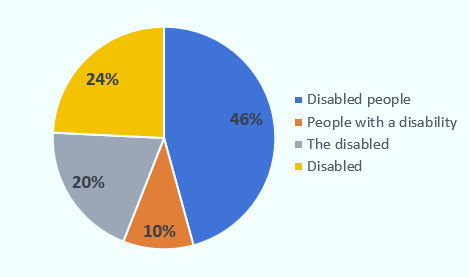Like academics and research teams around the world, Healthy Active Cities is having to adapt research methodologies to ensure that they are COVID-19 safe. One of our new methods is to start thinking about how we can utilise social media, and particularly twitter, as a qualitative data source for all things active travel.
Our first efforts to think about large social media datasets qualitative are documented in another blog ‘Transport, Twitter and… Poems?’
In this blog we want to touch briefly upon language used within tweets referencing Low Traffic or Active Neighbourhoods. Low Traffic or Active Neighbourhoods are groups of residential roads where motor vehicle through traffic is discouraged or removed in order to create streets inviting for playing, walking, rolling and cycling.
The tweets are part of a data set we are producing for our project “Low Traffic Neighbourhoods as process in Greater Manchester“, which is running until July 2021 and is part funded by Transport for Greater Manchester.
When starting to analyse the tweets, a common theme within them – irrespective of whether those that wrote them supported or opposed Low Traffic Neighbourhoods, was the frequent reference to disabled people. After collating all tweets within our data that made reference to disabled people, we analysed the terminology of how disabled people were referred to (and please bear in mind this only includes tweets when the words ‘disability’ or ‘disabled’ are used, not when synonyms for these terms were used.
And the results were sadly mixed. In 24% of the tweets collected, simply the word ‘disabled’ was used, while in 20% ‘the disabled’ was used. In 10% ‘people with a disability’ appeared, while just under half, 46%, used the term ‘disabled people’.

Why is this a problem?
In the UK the disability rights movements have rejected the person-first language like ‘people with disabilities’. It was produced by non-disabled people within a medical model of disability, in which disability is understood as an individual’s personal problem that needs to be cured. The use of terms such as ‘the disabled’ and just ‘disabled’ are dehumanising and contribute to diminishing perceptions of the agency that disabled people have to advocate for themselves and their own needs. Disabled people is the preferred term in the UK and if you are making reference to disabled people, use this term. It is identity first and has emerged from the social model of disability, recognising that disability is produced through societal conditions. Disabled people use a variety of terminology in their self-identification and that is their decision.
Non-disabled people frequently using language that is not the preferred term of disabled people and disabled people’s organisations also resonates with language used to refer to ethnic minorities, both within active travel and beyond. For example, BAME and BME are common acronyms used but are not popular with the people and communities that they are supposed to represent.
Moving forward
It is great the needs of disabled people are being bought into discussions of active travel and Low Traffic Neighbourhoods, on twitter and beyond. But it is important to use preferred terminology when bringing people, groups and communities into these conversations, recognising that when words have negative connotations or are hurtful, these terms need to be revisited and new terms need to be learned.
Even greater leaps forward will involve moving beyond only the recognition of needs of disabled people in the implementation of Low Traffic Neighbourhoods and working to amplify the voices of disabled people at all levels of discussion and decision making to ensure inclusion and accessibility are centralised within their development.
Leave a comment